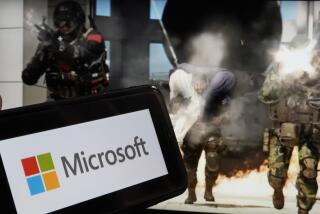Microsoft court oversight extended
- Share via
Court oversight of Microsoft Corp.’s market dominance, which began with a 2002 landmark antitrust settlement, was extended Tuesday for two years.
A federal judge ruled that a consent decree enforcing the settlement would remain in effect until November 2009. A group of 10 states, led by California and New York, had requested that the oversight be extended until November 2012.
The court’s ruling “should not be viewed as a sanction against Microsoft,” U.S. District Judge Colleen Kollar-Kotelly wrote. The judge said she based her decision on delays by Microsoft in filing technical documents related to the licensing of its software.
“We will continue to comply fully with the consent decree,” said Brad Smith, Microsoft’s general counsel.
The decision Tuesday may not have been what Microsoft hoped for, but it probably won’t crimp the software maker’s short-term plans either, said analyst Matt Rosoff at independent researcher Directions on Microsoft.
Redmond, Wash.-based Microsoft faces even tighter scrutiny in the European Union, where regulators have opened two antitrust probes -- one over the firm’s practice of giving away Internet Explorer with the Windows operating system and the other to determine if Microsoft withholds technical information from competing software makers.
As a result, Rosoff said, Microsoft has been careful in its design of new products. For example, instead of bundling the suite of free Windows Live software with new computers, it requires users to download the programs.
The antitrust settlement -- reached among Microsoft, the federal government and 17 states -- barred the company from seeking deals with computer makers to exclude competing software and aimed to keep Microsoft from using its operating system to stifle competition in other products.
Most of the decree was to expire in November 2007. The group of 10 states argued late last year that the process might not have had “enough traction to enhance long-term competition” among makers of computer operating systems.






